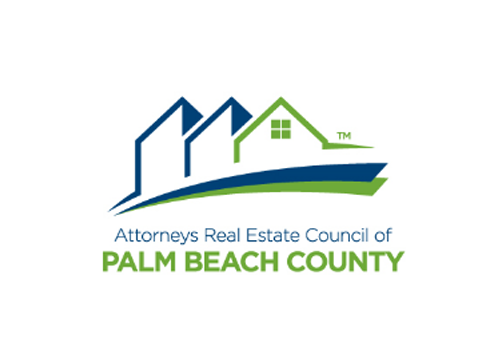
Law Blog
Do I need to be present at my Real Estate Closing?

Exploring Mail-Away and Virtual Closings: Do I Need to Be Present at My Real Estate Closing?
By Justin J. Shepard, Esquire
In today’s increasingly digital age, more and more buyers and sellers are asking the same question when it comes to their upcoming real estate closing: Do I actually have to be there?
The simple answer is no you do not. While each real estate transaction operates in its own sphere, and what might work for one may not work for another, it is becoming increasingly more common that one, if not both of the parties to the deal, never step foot in the closing agent’s office. Gone are the days when the sale and purchase of real estate culminated in an in-person meeting between the Seller, Seller’s Agent, Buyer, Buyer’s Agent, the Closing Agent, and whoever else may have had a remote interest in the deal. Gone are the days when pens flowed ink while hands were shaken across the table in a celebration of a “deal well done”. Gone are the days of rigid and absolute closing schedules, necessitating that the daily lives of those involved be put on pause to facilitate the transaction. Gone are the days of old, and in are the days of new; the days of the mail-away and virtual closings.
Fueled in one part by the birth and rise of the internet over the past 25 years, and catalyzed by the recent COVID-19 pandemic, real estate professionals and the clients they work with have ushered in new practices for facilitating a real estate transaction, emphasized by the need to make the transaction as a whole more precise, more efficient, and less stressful for all involved. Take for example, a mother purchasing her first family home, but is tied to work or other personal life commitments on the same day as the closing, resulting in some tough choices being made. Or, a Seller who has moved out of the state or country, and has no feasible way of appearing at the closing table without exorbitant travel costs. The new wave of mail-away or virtual closings can serve as the solution to their problems.
What is the difference though exactly between a mail-away closing and a fully virtual closing, and which one better suits your needs?
In a mail-away closing, the closing documents are just that: mailed away. Upon receipt by the Seller or Buyer, the documents are executed not unlike they would be if at a closing table; signed with blue ink before a registered notary public in your area. Upon completion of the document execution, the documents are then mailed back to the closing agent in order to finalize the transaction. The mail-away closing is simple and expedited in that when the documents are ready, they can be sent out to the Parties to sign at their ease, without the need to meet before the closing agent on the day of closing. With mail-away documents, the Client has ample opportunity to review and re-review to ensure that everything is done correctly, with no constraints on the time, place, and general manner of execution. The mail-away closing is an option for all Sellers and Buyers; however, it is to be noted that extra care should be given if you are a Buyer taking part in a mail-away transaction involving a loan. Making sure that the documents are signed and dated correctly is imperative to facilitating a mail-away loan closing, as an error could result in a delay from the Lender.
In a virtual closing, all signing is conducted 100% remotely, apart from each party, and even apart from the notary. The notary for a virtual closing is not a standard appointed notary, however. In order to perform a virtual closing, a notary who has been appointed as a Remote Online Notary (RON) is required. Thanks to Florida House Bill 409, which authorized the appointment and use of Remote Online Notaries in the State, as of January 1, 2020 fully virtual closings are a valid option for Buyers and Sellers to choose when determining how they want to go about their real estate closing. The virtual closing still requires a set time and date for the signing to occur, except that it can be performed from any location where the signer has an internet connection and audio/video communication capabilities. The closing is performed through a RON service provider, where the applicable documents are uploaded to be signed digitally by the parties. The parties join the virtual closing room, where the RON will require a remote presentation of the signer’s I.D., along with a credential analysis and identity proofing via knowledge-based assessment. Knowledge based assessment is the presentation of signer specific questions that serve to add an additional layer of verification to the signer’s I.D. For example, “Which of the following addresses is not associated with Jane Doe?”). The documents are then executed in a manner very similar to other e-signing programs, such as Docusign. The process is simple and expeditious for signing parties, and offers exceptional flexibility of use. It is worth noting however, that not all Lenders and/or states may accept fully virtual closings as an option. It is highly recommended to discuss this option with your lender and attorney to see if this is an avenue available and appropriate for you.
Whether choosing a mail-away or virtual closing, the options are plentiful in deciding upon what style of closing will work best for you and the other parties involved in your deal. For more information, please reach out to one of our attorneys who would be happy to go over the finer points of a mail-away or virtual closing, and how these processes are revolutionizing and rapidly altering the real estate closing practice.
The information provided in this article does not, and is not intended to, constitute legal advice; instead, all information, content, and materials available in this article are for general informational purposes only. Information in this article may not constitute the most up-to-date legal or other information. Readers should contact an attorney to obtain advice with respect to any particular legal matter. No reader, user, or browser of this article should act or refrain from acting on the basis of information in this article without first seeking legal advice from counsel in the relevant jurisdiction. Only your individual attorney can provide assurances that the information contained herein – and your interpretation of it – is applicable or appropriate to your particular situation.
The views expressed at, or through, this site are those of the author writing in their individual capacity only – not those of Scott-Harris as a whole. All liability with respect to actions taken or not taken based on the contents of this site are hereby expressly disclaimed. The content on this posting is provided “as is;” no representations are made that the content is error-free.
recent post


South Florida Closing Costs: What Buyers & Sellers Should Expect

Homeowners Associations (HOA) in Florida: Legal Rights and Obligations
recent post

HOA Foreclosure Sales in Florida: Understanding Risks, Liens, and Legal Considerations

South Florida Closing Costs: What Buyers & Sellers Should Expect










